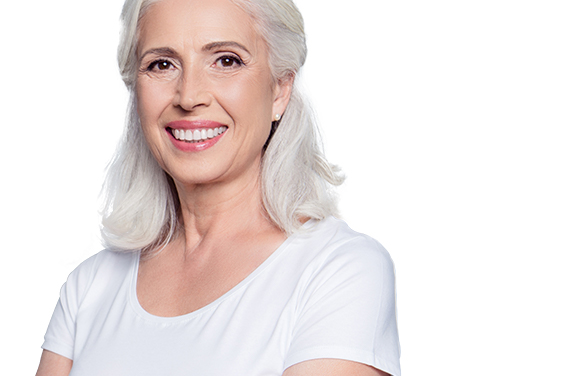Teeth Whitening Lower North Shore
Improve your smile with teeth whitening from a Sydney prosthodontist
- Teeth brightening
- Advanced teeth whitening
- Zoom whitening
Our teeth whitening procedure is performed in-office lower north shore Sydney. It can achieve dramatic results within two hours so you can have whiter teeth in just one appointment.

Why whiten your teeth?
Most people love their morning coffee, or a glass (or two) of red wine on a Friday night. However, enjoying certain foods and drinks can have harsh consequences on your teeth. This is because sugary acids attack the enamel that forms the layers over your tooth’s surface. Over time, this can cause your teeth to become discoloured. Ironside Advanced Dental Lower north shore teeth whitening procedure can help remove these stains and restore the colour of your teeth.
“My greatest extravagances would have to be cars, cameras and wine”
Professor Jim Ironside
The Zoom! Whitening Procedure
The process for Zoom! Whitening takes two appointments. The first appointment is your check-up and clean. At this appointment, Professor Ironside will assess your oral health. This oral health assessment is to ensure teeth whitening is the right procedure for you. In some cases, stains are not cosmetic, but a result of decay or trauma. If this is the case, Dr Ironside will recommend a treatment plan to treat the root cause of the problem.
If you are a suitable candidate, you will attend a follow up appointment where your teeth will be whitened. At this appointment, a rubber dam is placed to protect your gums from the whitening gel. The whitening gel is then applied to your teeth and activated by the blue LED light. This light is used three times at 15-minute intervals. At the end of your treatment, your teeth should be eight to ten shades lighter.
Ask a question or
book your consultation
Please fill in the online enquiry form to ask a question or book your consultation. Professor Ironside looks forward to seeing you soon.
People are also looking at:

Frequently asked questions about teeth whitening
Is teeth whitening safe?
Teeth whitening is safe indeed, but it is best to get your teeth whitened professionally as a qualified dentist will ensure that the teeth whitening gel is applied correctly and that no harm can come to your gum tissue.
If you have any damage to your tooth, this will increase your tooth sensitivity. You will need to book a consultation with Professor Ironside prior to your treatment to make sure you are a candidate for teeth whitening and that there is not another underlying issue causing your teeth to become discoloured. Professor Ironside is a leading prosthodontist, meaning he specialises in cosmetic dentistry and has the tools and skills to ensure your teeth whitening is performed professionally and safely.
How to whiten teeth quickly?
Professor Ironside offers Zoom! Teeth Whitening. Zoom! Works by using a high-grade whitening gel that becomes activated by a special blue light. This light is applied to the whitening gel in three, 15-minute intervals. By the end of the treatment, your teeth should be eight to ten shades lighter.
Zoom! Whitening lasts between six and nine months, providing you take care of your teeth. Ironside Advanced Dental recommends a top up at your six-monthly check-up and clean to maintain the health of your teeth.
What causes teeth to turn yellow?
Several factors can contribute to teeth turning yellow:
- Ageing: As we age, the outer layer of tooth enamel naturally wears down, revealing the yellowish dentine layer underneath. This can cause teeth to appear more yellow over time.
- Food and beverages: Consuming certain foods and beverages that contain strong colour pigments can stain the enamel of your teeth. Common culprits include coffee, tea, red wine, cola, berries, and dark sauces.
- Tobacco use: Both smoking and chewing tobacco can lead to yellowing of the teeth. The nicotine and tar in tobacco products can stick to tooth surfaces and cause discolouration.
- Poor oral hygiene: Inadequate brushing and flossing can allow plaque and tartar to build up on teeth, which can contribute to discolouration and yellowing.
- Medications: Certain medications, such as tetracycline antibiotics, can cause intrinsic staining, which means the discolouration occurs from within the tooth, resulting in a yellowish or greyish appearance.
- Fluorosis: Excessive exposure to fluoride during tooth development, typically in childhood, can lead to fluorosis. This condition causes yellow or brownish spots on the teeth.
- Dental trauma: Trauma or injury to a tooth can cause it to darken or turn yellow over time due to internal changes in the tooth structure.
It’s important to note that some people naturally have teeth with a slightly yellow hue due to variations in tooth colour and genetics. If you are concerned about the colour of your teeth, it’s best to consult with a dentist who can evaluate your specific situation and recommend appropriate treatment options.
Do strawberries whiten your teeth?
Strawberries are good for your teeth, but can they whiten them?
For a long time, it was believed strawberries mixed with a little baking soda could whiten your teeth. What we now know is strawberries remove the plaque from your teeth and can, in fact, give your teeth a whiter appearance.
If you would like to know more about the effects of strawberries on your teeth read our blog:
Is using baking soda on your teeth bad?
Yes, it is. Using it to whiten or clean your teeth can lead to avoidable dental issues in the long run. While baking soda can remove some stains, it does so by breaking down the enamel on your teeth. Frequent use of baking soda can increase the sensitivity of your teeth which can lead to side effects like cavities, which can lead to gum disease.
You also won’t be able to significantly whiten your teeth as it only lightens by one or two shades. If you want to whiten your teeth without any negative impact to your dental health, consider professional teeth whitening.
Where can you get your teeth whitened?
You can get your teeth whitened from quite a few places
Tooth whitening products are available from chemists, beauty parlours and dentists. And in the eyes of consumers each has its pros and cons. Products from the chemist are useful only for those in good oral health. You would also need to be patient as these can take weeks to show any results. Also, if your teeth are stained for reasons not cosmetic, teeth whitening won’t work.
Teeth whitening from a dentist, or a specialist cosmetic dentist, is usually faster and more effective. The whitening process takes an hour and can make your teeth up to 10 shades lighter.
Who is a good candidate for Zoom! Whitening?
Good candidates for Zoom! Whitening are individuals with healthy teeth and gums, surface stains or discolouration, no dental restorations on front teeth, a commitment to oral hygiene, and realistic expectations. However, it is best to consult with a dentist for a personalised
How do I whiten teeth without damaging enamel?
The most effective way is to visit a specialist cosmetic dentist
When a dental professional applies teeth whitening, they take precautions to protect your teeth. Before the whitening gel is applied, your oral health will be checked to make sure whitening is the best option. An over-the-counter product cannot provide the same level of service or care.
How long does teeth whitening from a dentist last?
How long it lasts depends on how well you look after your teeth
Typically, teeth whitening can last up to nine months. However, this does require you to maintain a good at-home oral hygiene routine. This includes brushing your teeth twice a day and flossing once a day. Minimising your consumption of coffee and red wine can also increase the longevity of your results.
When you visit us for your regular check-ups, we can give you a whitening top-up to help keep your smile looking healthy.
Can you whiten your teeth with hydrogen peroxide?
Hydrogen peroxide is the active ingredient in tooth whitening
From over-the-counter products to treatments like Zoom! Teeth Whitening, hydrogen peroxide is how teeth are whitened. Over-the-counter products have a lower concentration of hydrogen peroxide for safety reasons. Dentists, being qualified health professionals, use a higher concentration of hydrogen peroxide. The benefit of this is that you can see your results in a shorter amount of time.
How long does your tooth whitening treatment take?
Our whitening procedure is an in-office treatment that achieves dramatic results within two hours
This means you can brighten, whiten and rejuvenate the look of your smile to be camera-ready in less than two hours!
How can I maintain my white smile after my treatment?
To maintain a white smile after treatment, practise good oral hygiene, limit stain-causing foods and beverages, use a straw for staining drinks, quit smoking, consider touch-up treatments as advised, have regular dental check-ups, and be cautious of staining agents like certain medications or mouthwashes.
How long do teeth whitening results last, and how can I maintain them?
With good habits, professional whitening can last 12-24 months. To prolong your results:
- Avoid staining foods and drinks (coffee, red wine, berries) or use a straw where possible.
- Brush twice daily with a whitening toothpaste and floss daily.
- Rinse the water after consuming stain-causing items.
- Schedule periodic touch-up sessions-either in-office or with take-home gel–to refresh your brightness.
What professional teeth whitening options does Professor Ironside offer?
Professor Jim Ironside offers a range of professional teeth whitening options tailored to your needs, including teeth brightening, advanced teeth whitening, and Zoom whitening treatments. With extensive expertise in prosthodontics and cosmetic dentistry, Professor Ironside ensures safe and effective procedures that enhance your smile’s appearance. Beyond whitening, he also provides solutions like dental veneers and dental implants to improve overall dental aesthetics and function. Conveniently located in CBD Sydney, his practice combines advanced technology with personalised care to deliver optimal results for patients seeking quality dental treatments.
Are professional whitening treatments safe for my enamel and existing restorations?
Professional whitening treatments like teeth brightening, advanced teeth whitening and Zoom whitening are generally safe for your enamel and existing restorations when performed by a qualified specialist. Professor Jim Ironside, a professional in prosthodontics and cosmetic dentistry, emphasises that these treatments are carefully designed to protect enamel while enhancing your smile’s appearance. However, it’s important to note that whitening agents may not affect dental veneers or dental implants, which require specialised care. For patients in CBD Sydney, consulting with a trusted professional ensures personalised treatment plans that maintain oral health and optimise aesthetic outcomes safely.